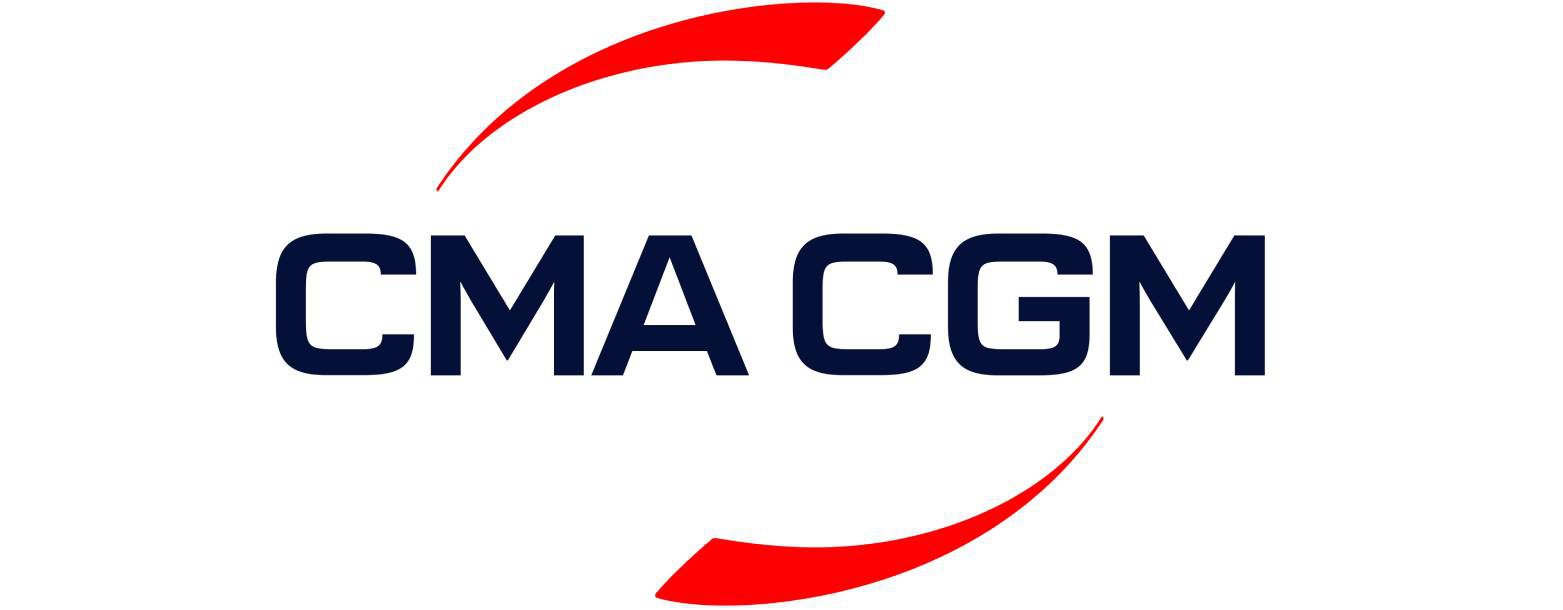Anything you need we are here to help



As the maritime industry faces unprecedented shifts in the Red Sea, it's crucial to stay well-informed. Explore FreightMango's dedicated Red Sea Information Page, your go-to resource for comprehensive updates on major liners adjusting rates and rerouting strategies. Stay ahead of the curve, understand the evolving landscape, and make informed decisions for your shipments. Your journey through the Red Sea just got smoother with FreightMango – where information meets navigation.
The Red Sea is a vital trade route connecting the Mediterranean to the Indian Ocean, but recent tensions threaten African trade. Disputes, piracy, and instability affect shipping routes, increase insurance costs, and endanger infrastructure. To counter, Africa needs regional cooperation, infrastructure investment, diversified routes, and better maritime security. Addressing these challenges is crucial for sustainable trade facilitation and economic growth.

Maersk responds to heightened risks in the Red Sea/Gulf of Aden by rerouting its MECL service around the Cape of Good Hope. Effective immediately, westbound shipments will proceed from Salalah to Algeciras via the Cape, maintaining normal rotation in the Middle East/Pakistan/India. Eastbound, the service from Newark to Algeciras will omit calls in Port Said and Djibouti, with cargo rerouted accordingly. Existing port call times and cut-offs will be maintained where possible. Transit times between USEC and India/Middle East will be extended by 1 or 2 weeks.
Drewry, a maritime analyst, anticipates that container shipping disruptions in the Red Sea might persist for months due to the current security risks. Most carriers are expected to avoid Suez Canal transits until the threat diminishes. However, Drewry notes that the overall impact on equipment shortages, port congestion, and ship schedules will be less severe than experienced during the pandemic. The supply chain is adapting to longer transit times around Africa's southern tip. While initial challenges are expected, the industry should stabilize as liner networks adjust to planned diversions.
The recent attacks by Houthi militants have led to a significant drop in Suez transits and a surge in voyages around the Cape of Good Hope. Despite disruptions, Drewry suggests that the system has sufficient spare capacity to manage the challenges. Forwarders caution about potential port congestion and equipment shortages in Europe due to ships clustering upon arrival. Delays of nine to 20 days on the westbound leg and additional waiting time are reported. Shippers are rushing to secure cargo before Chinese New Year, and elevated rates are anticipated beyond the first quarter.
Key Points:
Source: Drewry, Journal of Commerce
In a recap of 2023, the trans-Pacific container shipping market faced unforeseen disruptions, challenging the perceived normalization post-COVID upheaval. The Panama Canal's restricted transits due to historic drought hinted at looming troubles, but the major upheaval unfolded in the Middle East in December. Over 300 container ships redirected from the Red Sea to the longer Cape of Good Hope route to evade Houthi rebel attacks off Yemen. This diversion strained carrier capacity, caused delays, and spiked rates, accompanied by war-risk surcharges. The uncertainty, coupled with upcoming East and Gulf coast labor contract negotiations, forebodes a turbulent 2024 with rising prices and disruptions for cargo owners. An insightful webcast, led by Journal of Commerce editor Mark Szakonyi and industry analyst Lars Jensen, explores how these events will shape the shipping industry in 2024 and beyond.

CMA CGM notifies customers of a Port Congestion Surcharge (PCS) due to ongoing congestion in Douala, Cameroon. Effective from January 15, 2024 (loading date, February 10, 2024, for USA, US territories & Canada; Latam countries subject to notice), the surcharge applies to dry cargo from all ports to Douala, Cameroon. The amount is USD 250, GBP 200, or EUR 230 per TEU, with settlement as per freight terms.

MSC Mediterranean Shipping Company issues a Client Advisory, announcing a Peak Season Surcharge (PSS) effective from January 29, 2024, for shipments from India to USA East Coast, USA Gulf Coast, and San Juan, Puerto Rico. The surcharge is USD 1600 per 20'DV and USD 1600 per 40'DV/HC containers. This is an additional PSS on top of the previously implemented surcharges on January 10, 2024, and January 22, 2024. Applicable to all containers handed over to MSC custody from January 29, 2024, this measure is taken to ensure the high level of reliability and efficiency of MSC services. MSC expresses gratitude for continuous cargo support, assuring customers of consistent and dependable service.

MSC (Mediterranean Shipping Company) notifies valued customers of a General Rate Increase (GRI) effective from January 12, 2024, on all shipments (Dry and Reefers) from India to South America East Coast, South America West Coast, and North Africa. This GRI is in addition to the Contingency Adjustment Charge (CAC) implemented from January 1, 2024. The specified quantum for the GRI from India to SAEC/SAWC and North Africa is USD 1500 per container. MSC assures continued reliable and efficient service on these routes.

In response to robust demand in the Middle East and IPAK region for the Tanzanian market, MSC Mediterranean Shipping Company announces the implementation of a Peak Season Surcharge (PSS). Effective from January 15, 2024, the surcharge will amount to USD 1,000 per container for both dry and reefer cargoes transported from the Middle East, India, Pakistan, Sri Lanka, and Bangladesh to Dar Es Salaam.

In response to the dynamic conditions in the Red Sea/Suez area, Vanguard Logistics has revised General Rate Increases (GRIs) and Operational Cost Recovery Surcharges, effective for sailings from January 8, 2024. This adjustment reflects the evolving situation and aims to address the higher costs incurred by carriers. Vanguard Logistics emphasizes its commitment to working closely with carriers to mitigate these costs, with ongoing monitoring of market dynamics. Customers are encouraged to visit vanguardlogistics.com for up-to-date information, and the company appreciates understanding and cooperation during these challenging times.

Prioritizing crew and cargo safety in light of recent security incidents, our company has decided to continue avoiding the Red Sea route, updating schedules to incorporate the Cape of Good Hope transit. In response to these changes, we introduce a shuttle service connecting Red Sea cargo via Jeddah, Saudi Arabia, aiming to establish connections with Europe, North America, and Latin America. While acknowledging the impact on transit times, we are committed to providing the highest service quality and are actively working to resume normal operations swiftly. For personalized guidance, contact our local teams at your location.

European cargo owners face rising costs as ocean carriers implement new surcharges ($1,000 to $2,700 per FEU) to reroute vessels away from Red Sea attacks. Container spot rates have already spiked, with a 20% increase from Asia to the Mediterranean ($2,246 per FEU) and a 13% rise in Asia–North Europe rates ($1,714 per FEU) since mid-December. Stay tuned for updates on the Gateway regarding the impact on spot and contract rates.

After the December 30 incident involving Maersk Hangzhou, Maersk has suspended all transits through the Red Sea/Gulf of Aden until further notice. Vessels will be rerouted around the Cape of Good Hope for safety reasons. Ongoing investigations are underway, and cargo movement in the affected area remains paused. Maersk emphasizes its commitment to minimizing supply chain impact and advises checking Maersk.com for the latest diversion and contingency plans.

In response to increased security concerns in the area, vessels face challenges in safely transiting the Suez Canal from the east, affecting ports around the Red Sea. New bookings to/from specific ports in Asia, the Middle East, Oceania, East Africa, Indian Subcontinent, and Indian Ocean islands are temporarily suspended. Notable ports on hold include Port Sudan, Ain Sokhna, Aqaba, Jeddah, and King Abdullah. European, North American, Latin American, and West African routes remain unaffected for now.

A.P. Moller – Maersk group (Maersk) is implementing changes to services in the Red Sea/Gulf of Aden region to ensure safety, redirecting vessels around the Cape of Good Hope due to heightened security risks. In response to the incurred additional costs for carriers in prioritizing safety, Maersk introduces the Transit Disruption Surcharge (TDS), Peak Season Surcharge (PSS), and Emergency Contingency Surcharge (ECS) for affected cargo. The TDS is effective immediately, applicable to all diverted shipments, while the PSS and ECS will commence on January 1, 2024. Maersk aims to withdraw these surcharges when operationally feasible but emphasizes the significance of customer cooperation. Customers can find rate tables and details in the provided links. Maersk appreciates trust and loyalty during these challenging times, encouraging queries to local Maersk representatives for assistance.

MSC Mediterranean Shipping Company is implementing a General Rate Increase (GRI) effective February 8, 2024, for shipments from India to the USA West Coast. The GRI includes an additional charge of USD 1000 per 20'DV, 40'DV, and 40'HC containers, as well as for SOC, SOT, Reefer, Open Top, and Flat Rack containers. This increase is in addition to the GRI on January 18, 2024, and February 1, 2024. The adjustment aims to uphold the reliability and efficiency of MSC services. The new rates will apply to all containers handed over to MSC custody from February 8, 2024.

Last Friday, Hapag-Lloyd faced an attack on its vessel "Al Jasrah" in the Red Sea. Thankfully, no injuries occurred, and the ship continued its journey. Due to heightened safety concerns around the Suez Canal and the Red Sea, the company has decided to immediately avoid these routes, opting to navigate ships around the Cape of Good Hope. Regular reassessments will determine when services through the Suez Canal can resume, ensuring safety for crews and cargo.

Responding to heightened security concerns, a major maritime firm is reconfiguring shipping routes, avoiding the Red Sea to ensure the safety of both crew and cargo. Schedules have been updated to include Cape of Good Hope transit, impacting transit times. Introducing a new shuttle service via Jeddah, Saudi Arabia, the company aims to seamlessly connect Red Sea cargo with Europe, North America, and Latin America. The company remains committed to a swift return to normal operations and encourages clients to reach out to local teams with any inquiries.

On December 15, 2023, A.P. Moller – Maersk announced a suspension of all vessels to the Red Sea/Gulf of Aden due to security issues, prioritizing crew and cargo safety. Monitoring closely, Maersk rerouted paused vessels via the Cape of Good Hope, with future sailings assessed case by case. While optimistic about a Suez Canal return, the current uncertainty leads Maersk to prioritize the predictability of the Cape of Good Hope for swift customer solutions. Clients can contact local representatives for assistance during these challenging circumstances.



Freight Solutions